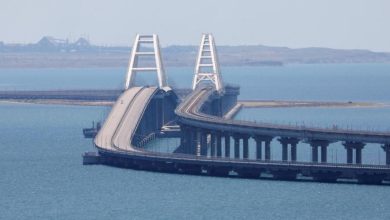UK Unveils Ambitious Defense Overhaul Amid Rising Global Threats, Plans 12 New Attack Submarines
Britain is launching a bold new defense strategy to tackle rising global instability, Russian aggression, and evolving threats shaped by cyber warfare and artificial intelligence, Prime Minister Starmer revealed.
The Strategic Defense Review outlines plans for 12 new submarines, expanded nuclear and cyber capabilities, and record military investment to boost readiness and reinforce global alliances.
Britain is embarking on a sweeping transformation of its defence strategy in response to mounting global threats, including heightened Russian aggression and rapid changes in modern warfare driven by emerging technologies. Prime Minister Keir Starmer’s Labor government is set to release a comprehensive Strategic Defense Review that promises to reshape the nation’s military priorities for decades.
The review, expected to be one of the most consequential in recent history, lays out a roadmap for fortifying the United Kingdom’s defense posture amid what Starmer described as “greater instability” than the country has seen in many years. Speaking in an interview with BBC Radio on Monday morning, the prime minister said, “There is greater instability on defense and security than there has been for many, many years, and greater threats.”
At the heart of this new strategy is the announcement that Britain will build up to 12 new attack submarines, a move widely seen as a response to escalating tensions with Russia and the evolving nature of international conflict. These submarines will be part of the trilateral AUKUS military alliance, which includes Australia and the United States, underscoring the UK’s commitment to enhancing its capabilities through international partnerships.
The Strategic Defense Review, led by former NATO secretary general George Robertson, evaluates the global security landscape and Britain’s position within it. The review reportedly warns that the UK is entering “a new era of threat,” where drones, cyber warfare, and artificial intelligence are reshaping battlefields and defense doctrines. Starmer emphasized that the review was designed to confront “the challenges we’re actually facing and likely to face,” prioritizing war-fighting readiness, force integration, and a NATO-first approach.
In line with these objectives, the government has confirmed a massive investment in weapons production and military infrastructure, including £1.5 billion to establish at least six new munitions and energetics factories. Additionally, 7,000 domestically manufactured long-range weapons are to be procured, and £6 billion will be allocated to munitions over the current parliamentary term.
The defense strategy also includes a £15 billion investment in the UK’s nuclear warhead program and £1 billion toward establishing a new cyber command, aimed at bolstering the country’s resilience in the digital domain. These moves signal an intent to prepare not just for traditional military confrontations, but also for cyberattacks, espionage, and technological warfare.
In February, the government had already pledged to raise defense spending to 2.5 percent of GDP by 2027, marking the largest sustained increase in UK military expenditure since the Cold War. Looking ahead, the Labor administration plans to push spending even higher to three percent by 2029. To support this ambitious funding plan, the government has proposed trimming overseas aid budgets.
Defense Secretary John Healey echoed the prime minister’s urgency, stating, “We’re in a world that is changing now… and it is a world of growing threats.” Healey highlighted the dangers of daily cyberattacks, nuclear proliferation, and the expansion of conflict zones, particularly with Russia becoming increasingly belligerent on the world stage.
The latest review builds on and significantly expands the defense assessment previously issued in 2021 and revised in 2023 under the Conservative administration following Russia’s full-scale invasion of Ukraine. Robertson, the review’s lead author, said the report would address what he calls a “deadly quartet” of threats: Russia, Iran, North Korea, and China.
However, Starmer has notably softened his government’s tone on China. In an op-ed published in The Sun, he did not mention Beijing, instead highlighting alliances between Russia, Iran, and North Korea. While the review brands Russia as an “immediate and pressing threat,” China is described more cautiously as a “sophisticated and persistent challenge.” This shift reflects Labor’s intention to reset strained UK-China relations, which reached a nadir under former Prime Minister Rishi Sunak’s Conservative leadership.
As the United States continues to call on NATO allies to strengthen their self-defense capabilities, The Britain is considering purchasing nuclear missile-capable aircraft from the U.S. While Healey neither confirmed nor denied the report, he stressed the importance of deterrence: “Strong deterrence is absolutely essential in order to keep Britain and the British people safe.”
With a blend of conventional force expansion, cyber readiness, and strategic diplomacy, the UK’s latest defense overhaul represents a significant step in navigating an increasingly unstable world. Starmer has described the review as a “blueprint for strength and security for decades to come.



